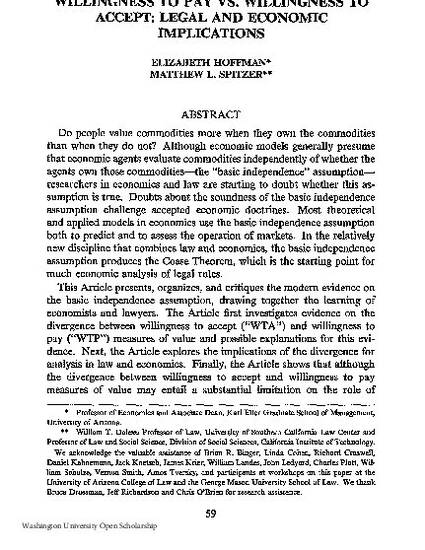
Do people value commodities more when they own the commodities than when they do not? Although economic models generally presume that economic agents evaluate commodities independently of whether the agents own those commodities--the "basic independence" assumption researchers in economics and law are starting to doubt whether this assumption is true. Doubts about the soundness of the basic independence assumption challenge accepted economic doctrines. Most theoretical and applied models in economics use the basic independence assumption both to predict and to assess the operation of markets. In the relatively new discipline that combines law and economics, the basic independence assumption produces the Coase Theorem, which is the starting point for much economic analysis of legal rules.
Available at: http://works.bepress.com/elizabeth-hoffman/26/

This is an article from Washington University Law Quarterly, 1993, 71(1);59-114. Posted with permission.